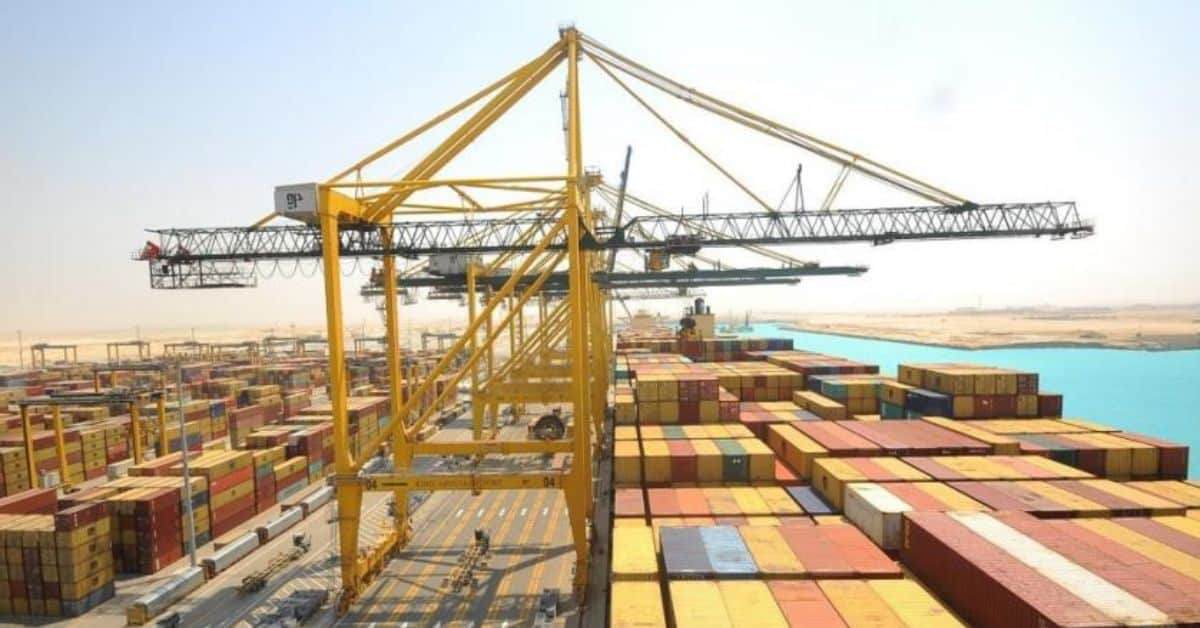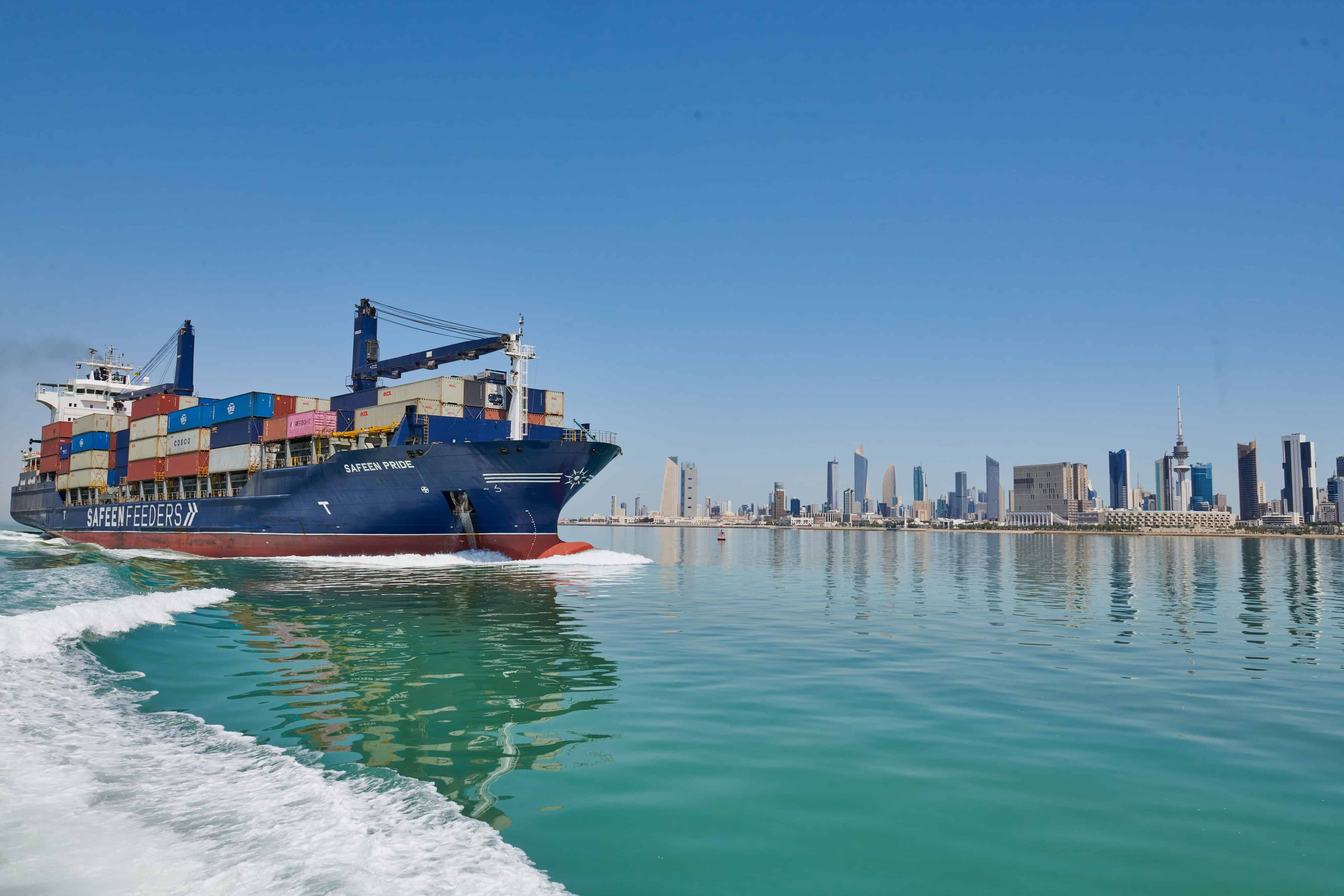The logistics performance of GCC countries has shown significant improvement compared to the previous year, according to the latest Logistics Performance Index (LPI) report released by the World Bank.
The UAE has been ranked as the fourth best country in the world for logistics in 2023, said the report, which evaluated 160 countries based on six key areas: customs, infrastructure, international shipments, logistics competence and quality, timeliness, and tracking and tracing.
The UAE received a LPI score of 7, which is a considerable increase from its score of 6.37 in 2018. The country received a score of 3.7 in customs, ranking 14th globally, and a score of 4.1 in infrastructure, ranking 9th globally. In the category of international shipments, the UAE received a score of 3.8, ranking fourth globally.
The country also performed well in the logistics competence and quality category, receiving a score of 4. However, the country’s timeliness score was 11 and its tracking and tracing score was 4.1, both ranking 11th globally.
| Country | Year | LPI Score | LPI Rank | Customs Score | Customs Grouped Rank | Infrastructure Score | Infrastructure Grouped Rank | International Shipments Score | International Shipments Grouped Rank | Logistics Competence and Quality Score | Logistics Competence and Quality Grouped Rank | Timeliness Score | Timeliness Grouped Rank | Tracking and Tracing Score | Tracking and Tracing Grouped Rank |
| UAE | 2023 | 7 | 4 | 3.7 | 14 | 4.1 | 9 | 3.8 | 4 | 4 | 11 | 4.2 | 4 | 4.1 | 11 |
| Qatar | 2023 | 34 | 3.5 | 3.1 | 43 | 3.8 | 19 | 3.1 | 47 | 3.9 | 14 | 3.5 | 46 | 3.6 | 34 |
| Saudi Arabia | 2023 | 38 | 3.4 | 3 | 47 | 3.6 | 30 | 3.3 | 38 | 3.3 | 46 | 3.6 | 35 | 3.5 | 37 |
| Oman | 2023 | 43 | 3.3 | 3 | 47 | 3.2 | 47 | 3.4 | 26 | 3.2 | 53 | 3.1 | 76 | 3.9 | 20 |
| Bahrain | 2023 | 34 | 3.5 | 3.3 | 31 | 3.6 | 30 | 3.1 | 47 | 3.3 | 46 | 4.1 | 10 | 3.4 | 41 |
| Kuwait | 2023 | 51 | 3.2 | 3.2 | 37 | 3.6 | 30 | 3.2 | 43 | 2.9 | 65 | 2.8 | 101 | 3.3 | 49 |
Qatar also performed well, receiving a LPI score of 34 and a rank of 3.5 globally. The country scored well in customs with a score of 3.1, ranking 43rd globally, and a score of 3.8 in infrastructure, ranking 19th globally. However, the country received a low score of 3.1 in international shipments, ranking 47th globally.
Saudi Arabia received a LPI score of 38 and a rank of 3.4 globally. The country scored 47th globally in customs with a score of 3 and scored 30th globally in infrastructure with a score of 3.6. In the category of international shipments, Saudi Arabia received a score of 3.3, ranking 38th globally. However, the country’s timeliness score was 46, and its tracking and tracing score was 3.5, both ranking 35th globally.
Oman received a LPI score of 43 and a rank of 3.3 globally. The country ranked 47th globally in customs, with a score of 3, and ranked 26th globally in international shipments, with a score of 3.2. The country’s timeliness score was 53 and its tracking and tracing score was 3.9, ranking 76th and 20th globally, respectively.

Bahrain received a LPI score of 34 and a rank of 3.5 globally. The country scored well in customs with a score of 3.3, ranking 31st globally, and infrastructure with a score of 3.6, ranking 30th globally. However, the country’s timeliness score was 46, and its tracking and tracing score was 3.4, ranking 10th and 41st globally, respectively.
Kuwait received a LPI score of 51 and a rank of 3.2 globally. The country scored 37th globally in customs with a score of 3.2, and scored 30th globally in infrastructure with a score of 3.6. The country’s timeliness score was 65, and its tracking and tracing score was 3.3, ranking 101st and 49th globally, respectively.
The report noted that the logistics performance of GCC countries has been positively impacted by their investments in infrastructure and technology, as well as their efforts to improve customs procedures and trade facilitation. The GCC countries have also been taking steps to enhance their logistics competence and quality through skill development programs and initiatives to promote innovation and efficiency in the sector.
However, the report also highlighted areas where the GCC countries need to improve, including the timeliness of shipments and the quality of tracking and tracing systems. The report suggests that further investments in technology and data analytics could help address these issues.
Overall, the LPI report indicated that the logistics sector in the GCC countries is moving in the right direction, and that continued efforts to improve logistics performance could further strengthen their position as global trade hubs.








